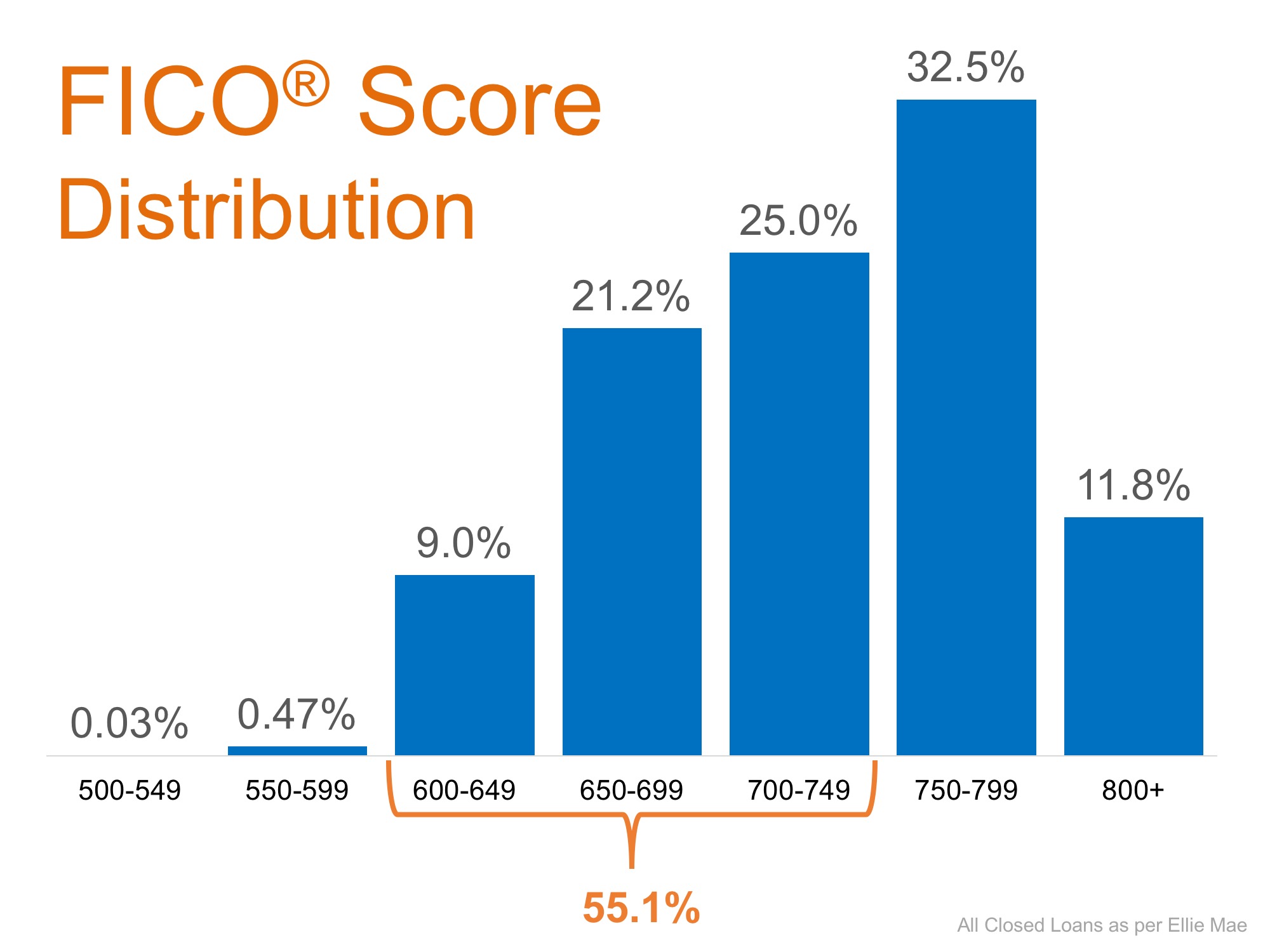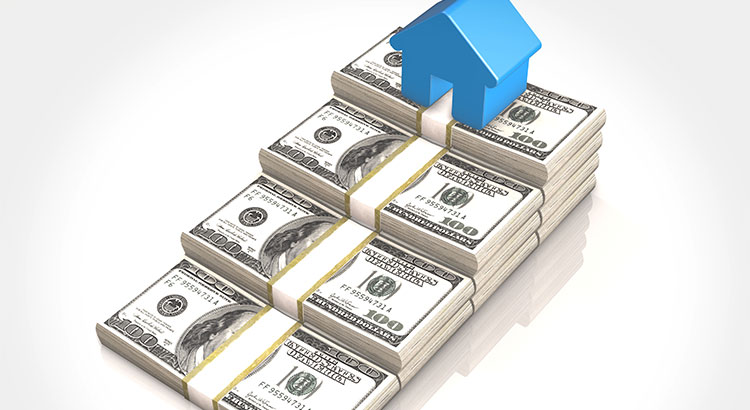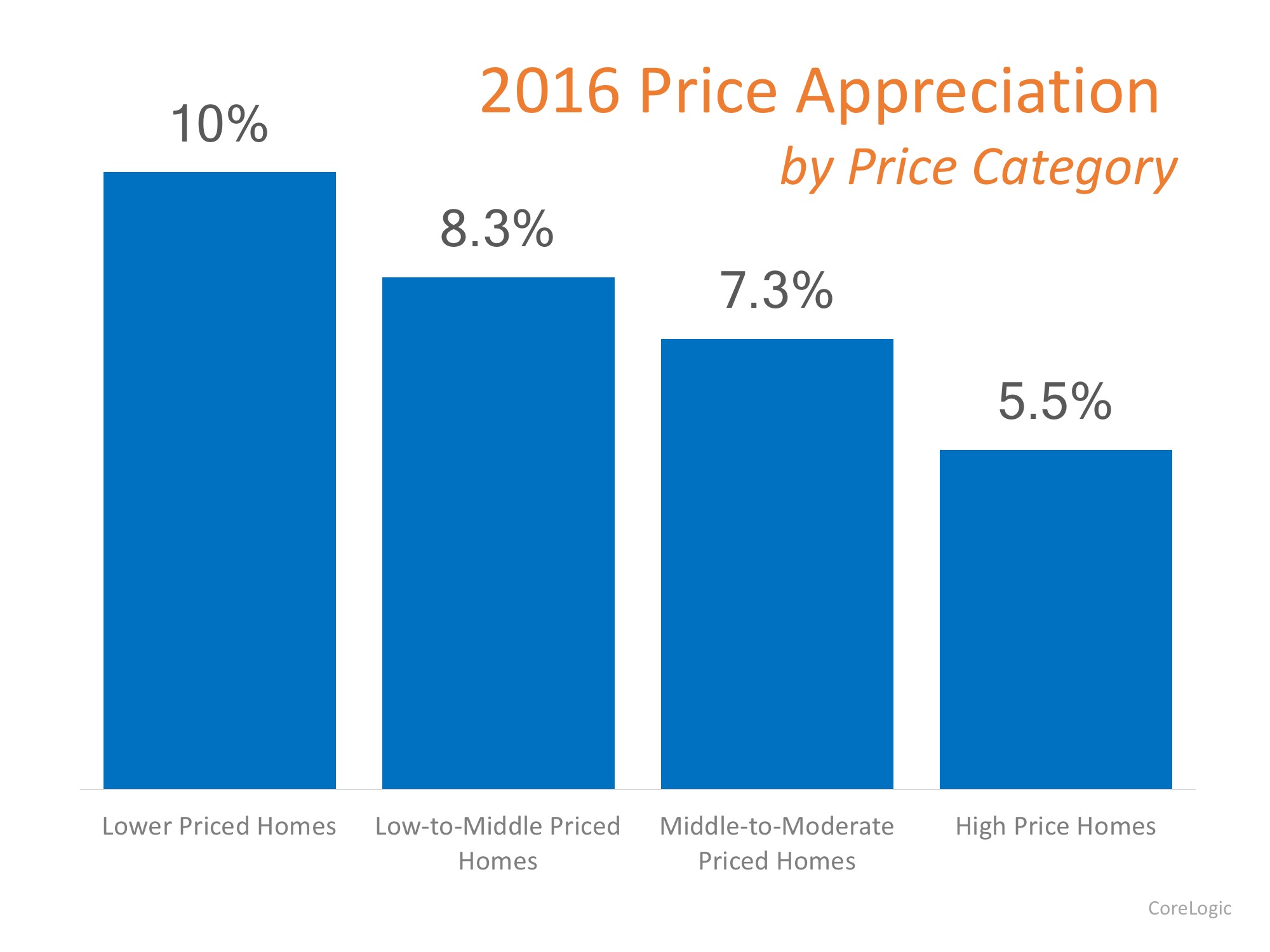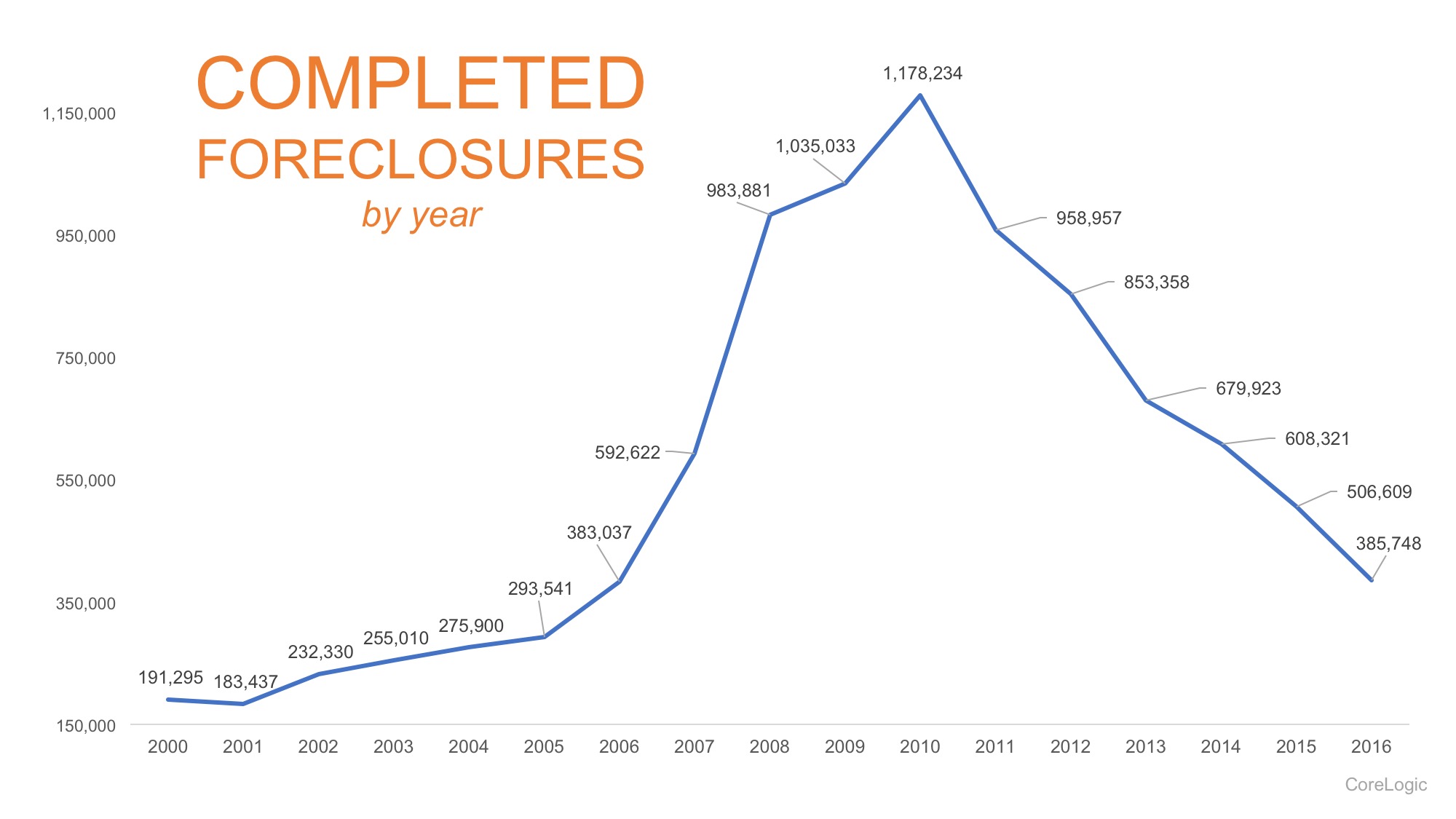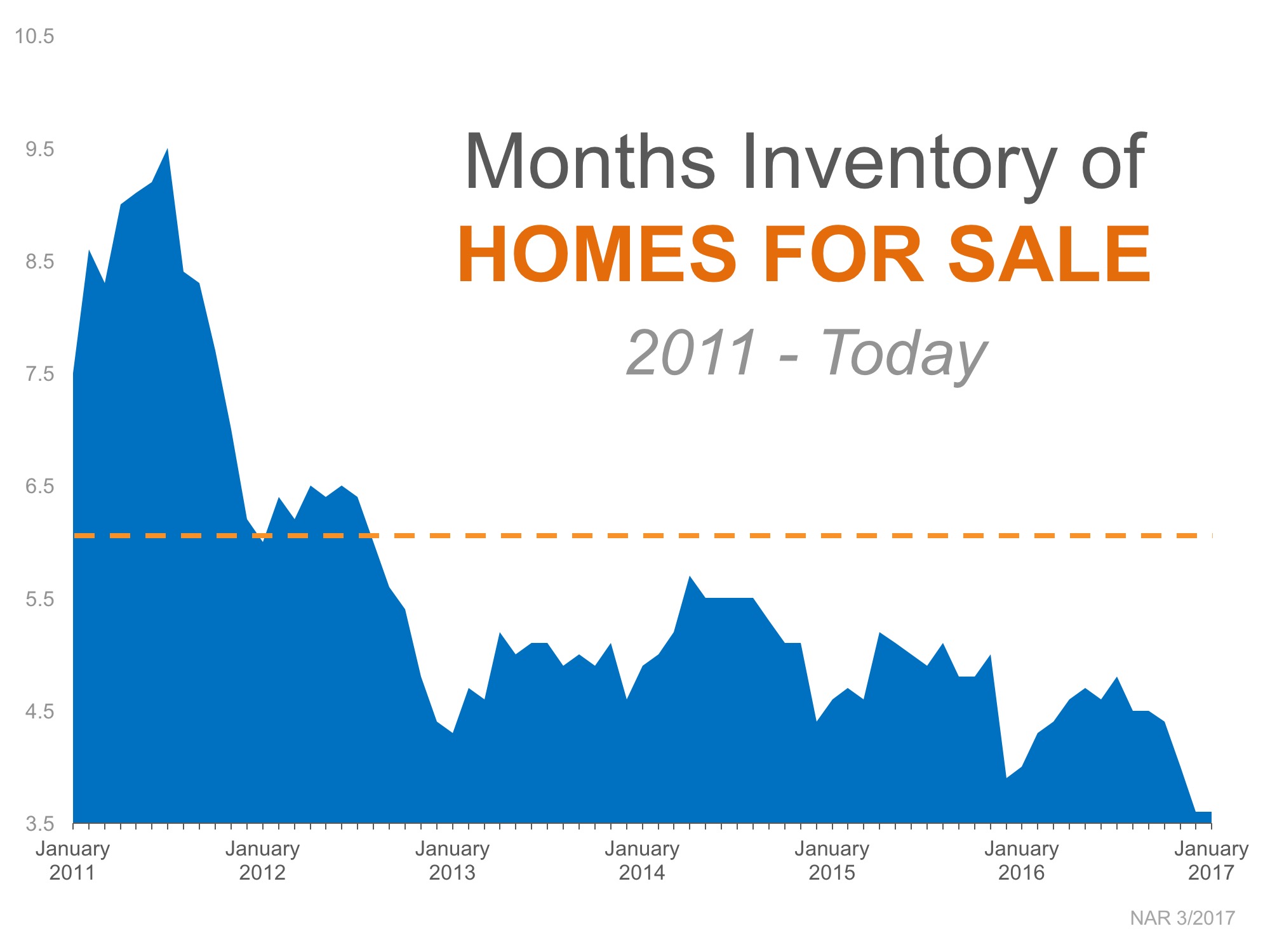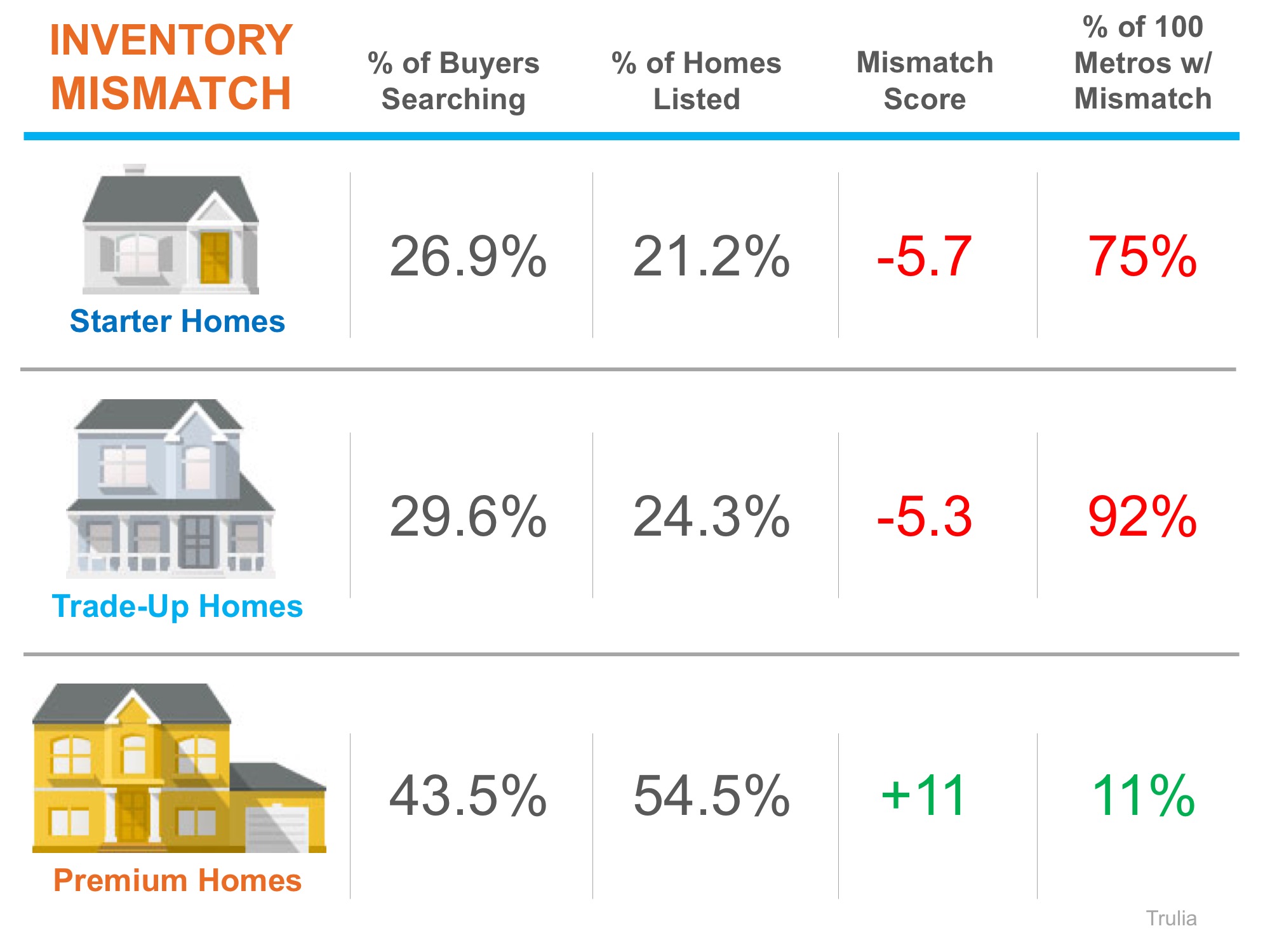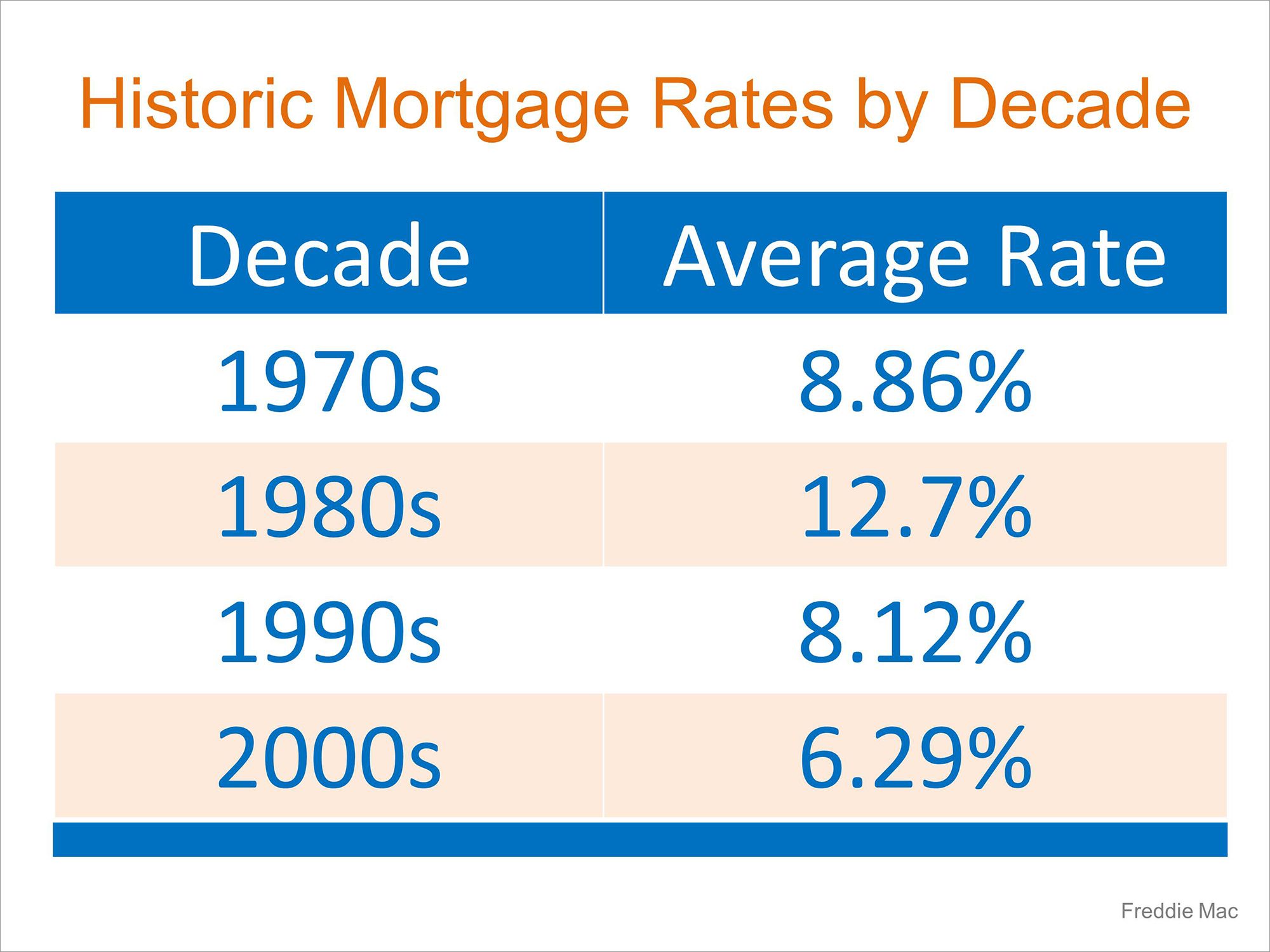Some industry experts are claiming that the housing market may be
headed for a slowdown as we proceed through 2017, based on rising home
prices and a potential jump in mortgage interest rates. One of the data
points they use is the
Housing Affordability Index, as reported by the
National Association of Realtors (NAR).
Here is how
NAR defines the index:
“The
Housing Affordability Index measures whether or not a typical family
earns enough income to qualify for a mortgage loan on a typical home at
the national level based on the most recent price and income data.”
Basically,
a value of 100 means a family earning the median income earns enough to
qualify for a mortgage on a median-priced home, based on the price and
mortgage interest rates at the time. Anything above 100 means the family
has more than enough to qualify.
The higher the index, the easier it is to afford a home.
Why the concern?
The
index has been declining over the last several years as home values
increased. Some are concerned that too many buyers could be priced out
of the market.
But, wait a minute…
Though the index
skyrocketed from 2009 through 2013, we must realize that during that
time, the housing crisis left the market with an overabundance of
distressed properties (foreclosures and short sales). All prices dropped
dramatically and distressed properties sold at major discounts. Then,
mortgage rates fell like a rock.
The market is recovering, and values are coming back nicely. That has caused the index to fall.
However, let’s remove the crisis years (shaded in gray) and look at the current index as compared to the index from 1990 – 2008:
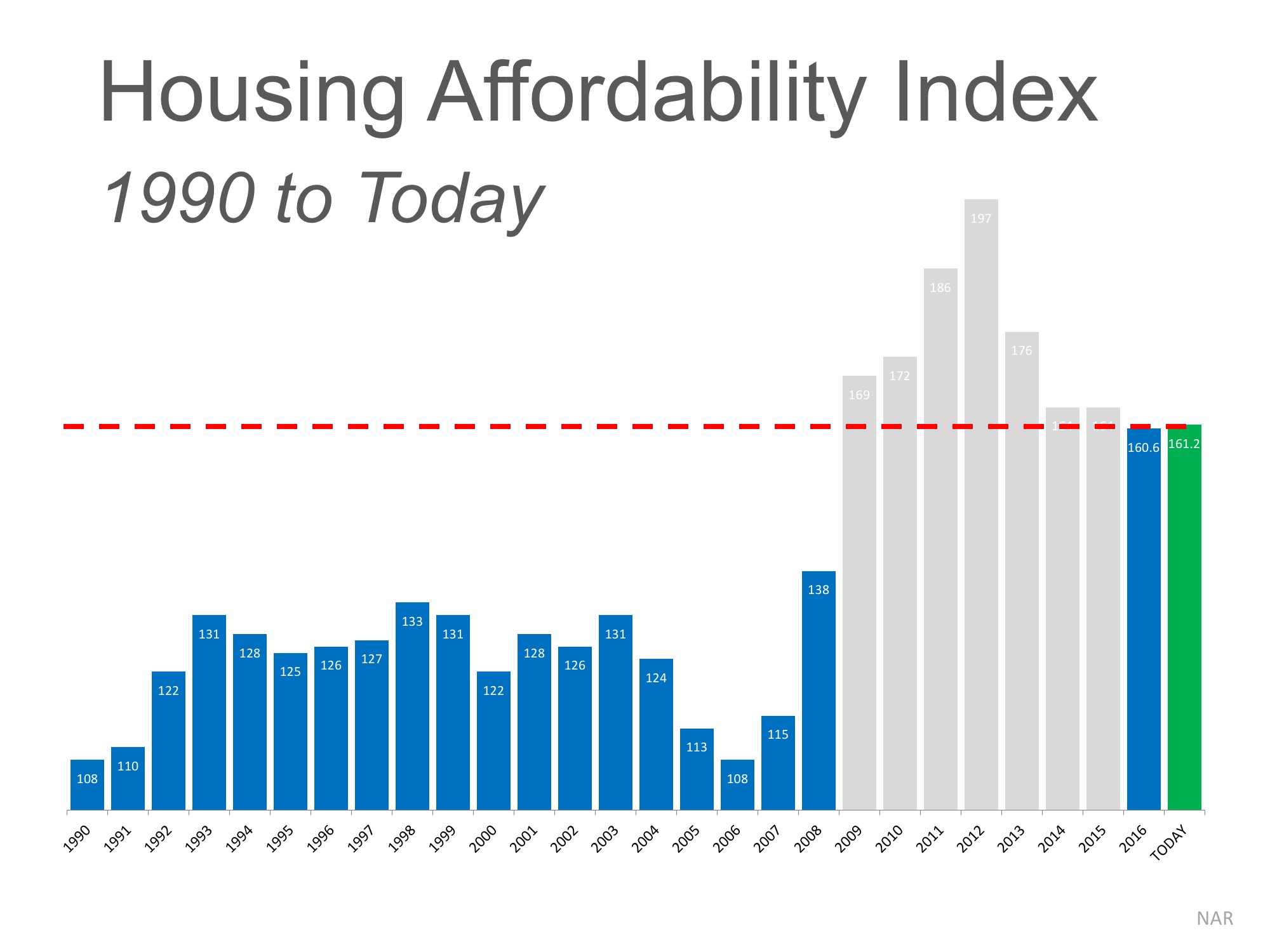
Though
prices and rates appear to be increasing, we must realize that
affordability is composed of three ingredients: home prices, interest
rates,
and income. And, incomes are finally rising.
ATTOM Data Solutions recently released their
Q1 2017 U.S. Home Affordability Index. The report explained:
“Stronger
wage growth is the silver lining in this report, outpacing home price
growth in more than half of the markets for the first time since Q1
2012, when median home prices were still falling nationwide. If that
pattern continues, it will help turn the tide in the eroding home
affordability trend.”
![Is Your First Home Within Your Grasp? [INFOGRAPHIC] | MyKCM](https://d8yi0qr1xsq5x.cloudfront.net/2017/04/11134052/FTHB-Demographics-STM-1046x1477.jpg)


![Why Millennials Choose to Buy [INFOGRAPHIC] | MyKCM](https://d8yi0qr1xsq5x.cloudfront.net/2017/03/23122033/Millennials-Choose-to-Buy-STM-1046x1354.jpg)



